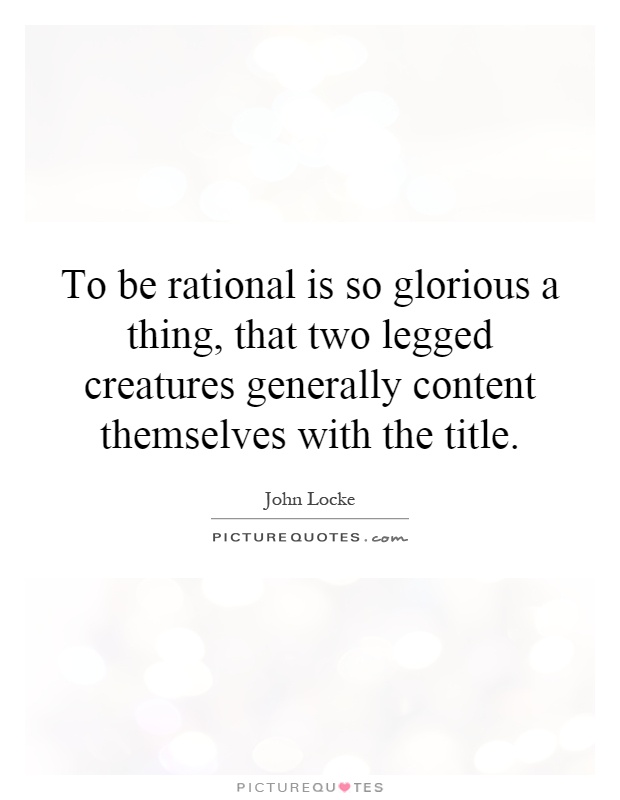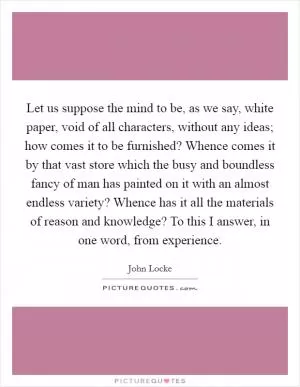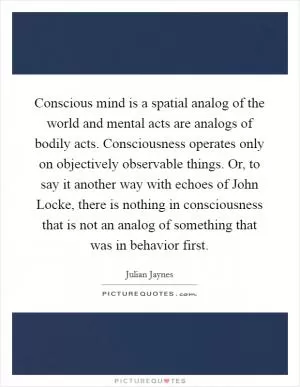To be rational is so glorious a thing, that two legged creatures generally content themselves with the title

To be rational is so glorious a thing, that two legged creatures generally content themselves with the title
John Locke, a prominent figure in the Enlightenment era, was a firm believer in the power of reason and rationality. He believed that human beings were capable of using their intellect to understand the world around them and make informed decisions. In his famous work, An Essay Concerning Human Understanding, Locke explores the nature of knowledge and the limits of human understanding.Locke's quote, "To be rational is so glorious a thing, that two legged creatures generally content themselves with the title," reflects his belief in the importance of rationality in human life. He argues that being rational is a noble pursuit, yet many people are satisfied with simply being called rational without truly embodying the principles of reason in their actions and beliefs.
For Locke, being rational meant using one's intellect to critically analyze information, question assumptions, and arrive at logical conclusions. It meant being open-minded, willing to consider different perspectives, and being willing to change one's beliefs in light of new evidence. Being rational also meant being able to control one's emotions and impulses, and to make decisions based on reason rather than instinct.
Locke believed that rationality was essential for a well-functioning society. He argued that a rational government should be based on the consent of the governed, and that laws should be grounded in reason and applied fairly and consistently. He also believed that education should focus on developing critical thinking skills and fostering a love of learning.












 Friendship Quotes
Friendship Quotes Love Quotes
Love Quotes Life Quotes
Life Quotes Funny Quotes
Funny Quotes Motivational Quotes
Motivational Quotes Inspirational Quotes
Inspirational Quotes